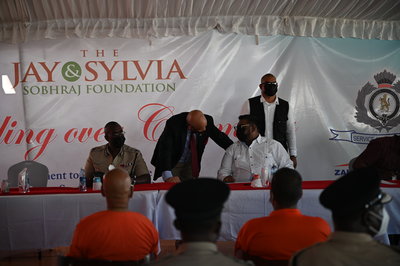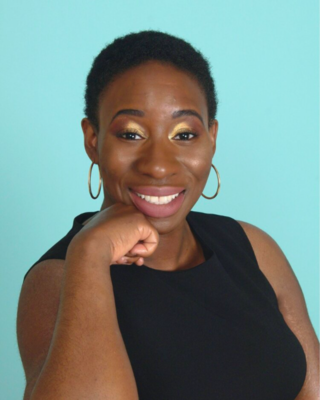Queens-based Philanthropist Helps to Modernize Guyana Police with $1M
The Jay and Sylvia Sobhraj Foundation, a Queens-based philanthropist that has invested in key public safety and educational needs in Guyana and New York City, recently donated state-of-the-art computer technology equipment and training to help modernize Guyana’s national police force.
The charity, founded by Jay Sobhraj, a principal and founder of Zara Realty, based in Jamaica, Queens, is a native of Guyana and has donated more than $1 million in technology to the police force over the past decade.
On June 24, the foundation celebrated its latest donation of more than 200 computers, printers, tablets, and other equipment, along with the Co-operative Republic of Guyana’s President Mohamed Irfaan Ali.
Members of the foundation, including Mr. Sobhraj, toured police facilities in different parts of the South American nation and met with top officials to discuss ongoing and future technology needs.
The foundation provided more than 200 hours of consulting and training on the new equipment and to help the police force transition from a manual to a digital case management operation.
The 6,000-member Guyana Police Force (GPF) had been operating with limited information technology, seriously impeding its ability to manage information flows, solve crimes, organize their forces and deploy resources across different regions, where they could most effectively and efficiently protect the citizens of Guyana.
“Like any other profession today, police officers need access to the latest technology to do their jobs to the best of their ability,” said Jay Sobhraj. “To confront the problems of the 21st Century, police in Guyana must have the equipment of the 21st Century. Our foundation has long been dedicated to helping modernize the Guyana Police Force, and the Guyana educational system, because we know that a society thrives when public safety is assured and when children believe they have a bright future. We will continue to support the brave men and women of the Guyana Police Force.”
The latest donation furnishes two entire police headquarters with all new technology.
Since 2012, the Jay and Sylvia Sobhraj Foundation has donated over $1 million in technology equipment and technical assistance. The foundation donated three computer centers, one for each of the country’s three Police Colleges, and a Cybercrime Center at the Guyana Police Force Headquarters.
In addition, the foundation partnered with the GPF to distribute sports gear and school supplies to various communities across Guyana.
The overall goal is to help police better solve crime, protect lives and property, and contribute meaningfully to the country’s economic development.
As COVID-19 restrictions begin to ease, the country is eager to build back its tourism industry and encourage foreign investment.
Born in Guyana in 1948, Mr. Sobhraj was one of 10 children and the son of a rice farmer. Along with two of his brothers, George and Ken, he co-founded Zara Realty in 1982 in Jamaica, Queens. The firm, one of the city’s top providers of affordable housing, also owns and manages more than 3.1 million square feet of commercial real estate in the New York region.
In 2007, after years of independent charitable giving, he officially founded the Jay and Sylvia Sobhraj Foundation with his wife. In addition to its work with the GPF, the foundation created the first-ever psychology degree program at the University of Guyana to help address the lack of mental healthcare in the country.
In Queens, the foundation, in partnership with the America Sevashram Sangha Temple, runs free preparatory classes for students to take the Specialized High School Admittance Test (SHSAT), which allows entry into the city’s top academic high schools.
The foundation also donated a computer lab to Richmond Hill High School in Queens.



